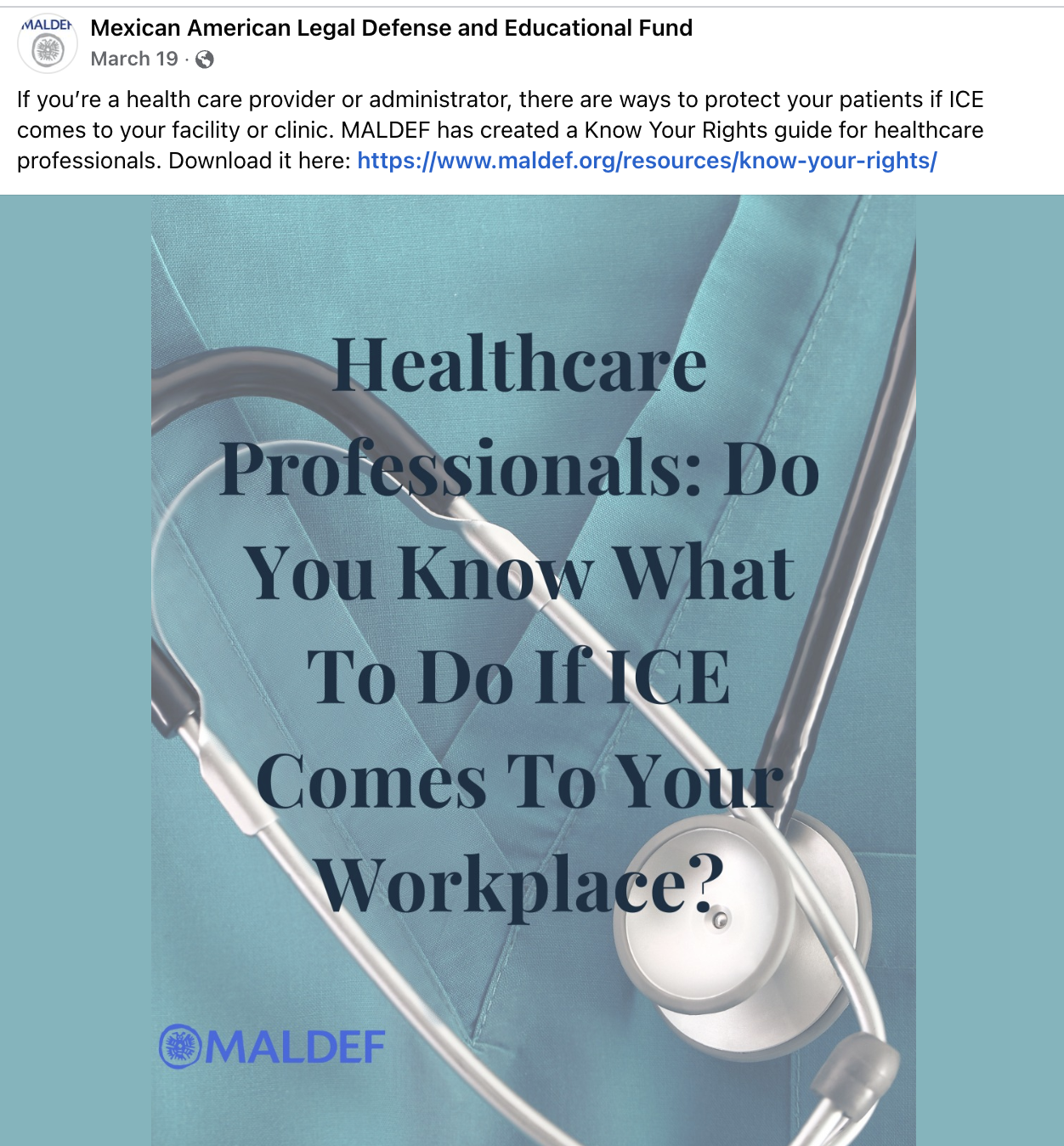Fears of 'medical deportation' increase migrants barriers to health care
A Tucson woman was deported after receiving a free mammogram, highlighting growing fears that routine medical visits can endanger undocumented immigrants.

A Tucson woman’s green card application was denied and she was deported to Mexico after receiving a free breast cancer screening from a local health clinic, according to the woman’s family.
Medical deportation, the removal of an undocumented person from the country due to their medical condition, typically occurs when the person is unable to pay for treatment. The argument is usually that the person poses a financial burden on health care providers or the government, but the Tucson woman who was deported did not require any additional treatment beyond the screening.
Patient care advocates around the country and in Tucson are stressing the importance of protecting patients’ private health information, as this new fear adds to the obstacles to health care access for both undocumented individuals and those living in mixed-status households.
“There are rumors, based in fact, that hospitals and clinical settings are also sites of medical deportations of people going in for a health-related emergency and leaving the hospital detained by immigration and customs enforcement,” said Megan Carney, an associate professor of anthropology at the University of Arizona and director of regional food studies.
This fear has intensified following the Trump administration’s recent rescission of a Biden-era policy that designated certain locations as protected from ICE entry. Places that were previously considered safe for undocumented immigrants, including schools, places of worship, and hospitals, have lost their sanctuary status.
In response, hospitals nationwide are determining how to uphold patient care for all. Some have issued internal protocols informing staff on how to respond if ICE agents enter their facilities.
The Ohio Nurses Association has established explicit guidance detailing how to protect at-risk patients, understand legal rights, and how to handle encounters with immigration officers.
In Massachusetts, the attorney general has issued a statement offering information to help health care professionals safeguard undocumented patients in the event of ICE’s presence.

While officials in Arizona have not released a statewide statement, some Tucson hospitals are taking independent action.
An El Rio Community Health Center nurse, who asked to remain anonymous, said that El Rio does have an explicit protocol, but it’s not available to the general public. It’s unclear what the El Rio guidance contains, but protocols in other states outline staff responsibilities and patient rights.
Representatives from Tucson Medical Center and Banner University Medical Center did not respond to Tucson Spotlight’s questions about official protocols. However, physicians working at both hospitals said no ICE-related guidelines have been communicated internally.
Experts say having policies in place to protect data and information in health settings is critically important, especially after the recent deportation of the Tucson woman who received the free breast cancer screening.
The woman’s cousin, who asked to remain anonymous, said the woman migrated to Tucson with her son to escape political instability in Mexico. Her husband is a natural-born American citizen working a full-time management job, so her son was able to easily secure his American citizenship.
The woman entered the country on a visitor visa, but after her son enrolled in school and ended up needing additional care, she remained in the country past her visa’s expiration.
While in Tucson, she received a free mammogram during a breast cancer screening event offered by a local clinic. Soon after, she applied for a green card — a process that, given her family circumstances, in the past would have been straightforward.
However, she was denied on the grounds of unlawful presence, with immigration services basing the claim on the record of her receiving the breast cancer screening.
The woman was deported shortly after her green card was denied. Her passport was held by authorities, and she is barred from reapplying for a green card for a year.
Her son was removed from school and returned to Mexico with her, while her husband remains in the U.S. to support them financially.
“It’s illogical,” said the woman’s cousin. And now ”an American citizen is affected. He has to put his education on pause and leave the country. That’s hard on a little kid.”
Azumi Valencia is a senior at BASIS Tucson North, researching health disparities for immigrant women as part of her senior project.
Tucson Spotlight is a community-based newsroom that provides paid opportunities for students and rising journalists in Southern Arizona. Please support our work with a paid subscription.



